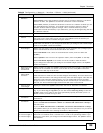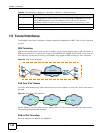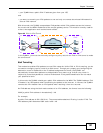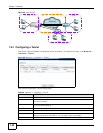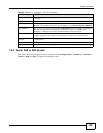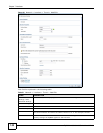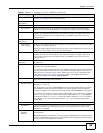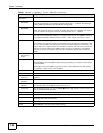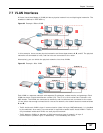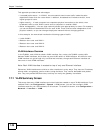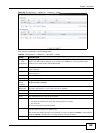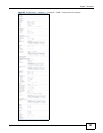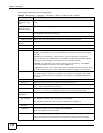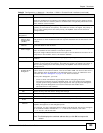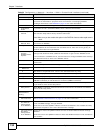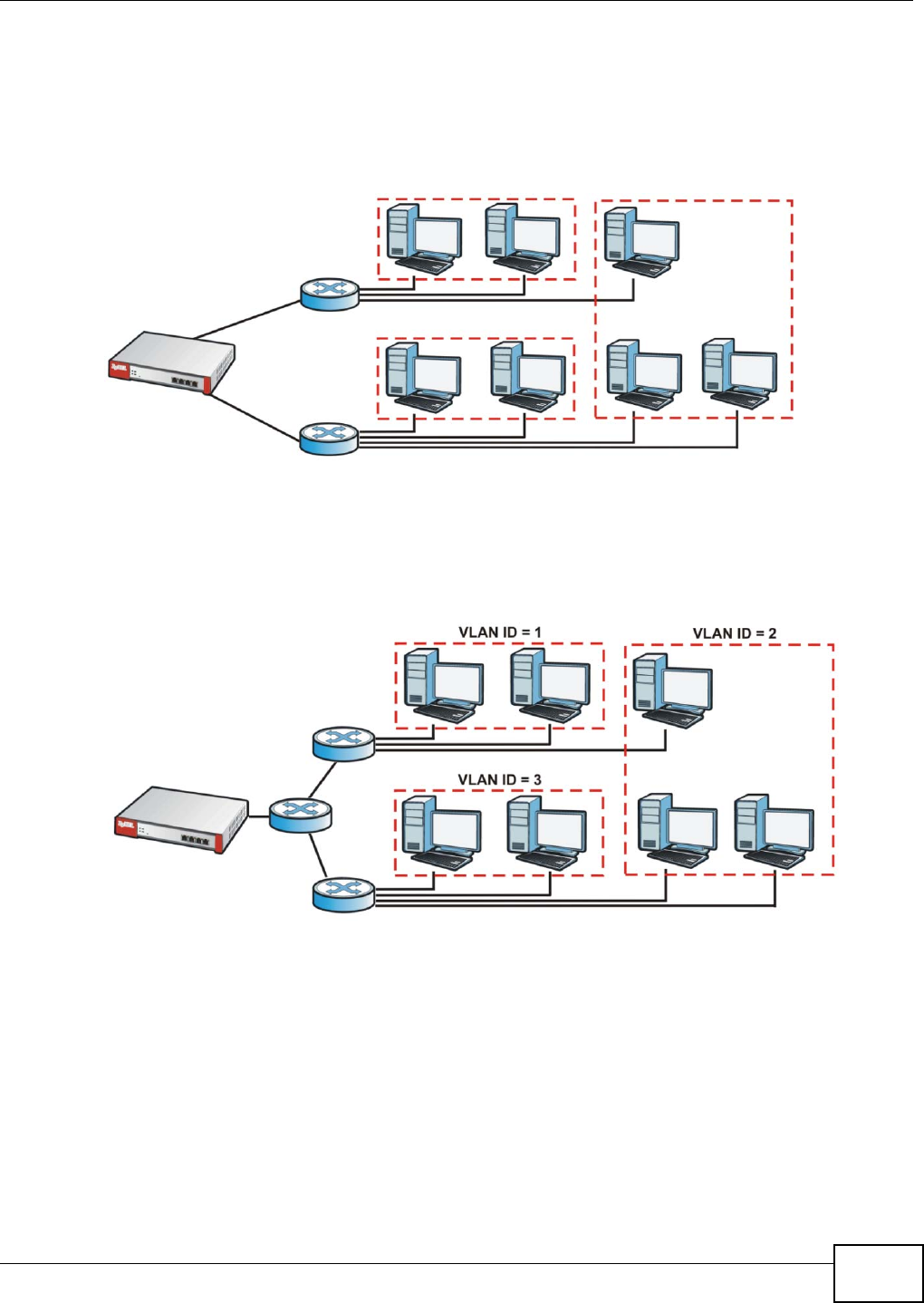
Chapter 7 Interfaces
ZyWALL 110/310/1100 Series User’s Guide
147
7.7 VLAN Interfaces
A Virtual Local Area Network (VLAN) divides a physical network into multiple logical networks. The
standard is defined in IEEE 802.1q.
Figure 92 Example: Before VLAN
In this example, there are two physical networks and three departments A, B, and C. The physical
networks are connected to hubs, and the hubs are connected to the router.
Alternatively, you can divide the physical networks into three VLANs.
Figure 93 Example: After VLAN
Each VLAN is a separate network with separate IP addresses, subnet masks, and gateways. Each
VLAN also has a unique identification number (ID). The ID is a 12-bit value that is stored in the
MAC header. The VLANs are connected to switches, and the switches are connected to the router.
(If one switch has enough connections for the entire network, the network does not need switches
A and B.)
• Traffic inside each VLAN is layer-2 communication (data link layer, MAC addresses). It is handled
by the switches. As a result, the new switch is required to handle traffic inside VLAN 2. Traffic is
only broadcast inside each VLAN, not each physical network.
• Traffic between VLANs (or between a VLAN and another type of network) is layer-3
communication (network layer, IP addresses). It is handled by the router.
A
B
C
A
B



